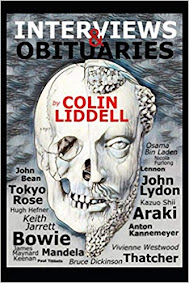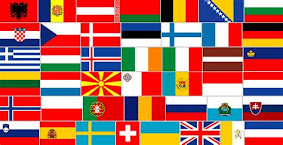The respectable right is respectable because it accepts the principles of liberalism and can't offer serious resistance to liberal conclusions.
That's why a less respectable "alternative right" is needed. But what is the alternative that would do better? People have been looking for a good way to resist liberalism for a long time, and judging by results they haven't gotten very far.
Liberalism has a lot of staying power, so there must be something in it that goes rather deep. If that's so, it's not going to go away because fashions change, and dealing with it effectively is going to require thought and correct diagnosis.
The trap of modernity
A lot of the problems with liberalism have to do with something men have been arguing about since Plato's time: the relation between particular and universal.
Any sensible approach to life and the world has to have a place for both, and it has to put them into a relation that makes sense.
Liberalism accepts both, which speaks well for its (comparative) good sense and moderation. It's a modern outlook though, and modernity insistently emphasizes the clear, usable, and demonstrable at the expense of the traditional, transcendental, and common-sensical.
The emphasis is very helpful in some respects--in formulating physical laws, for example--but not helpful in others. As to politics its usual effect is to make some one thing absolute. A modern political movement wants to be able to place the world in a clear manageable order through reliance on a single principle--Science, Economics, Freedom, Equality, Power, whatever--from which all else can be derived.
An unusual thing about liberalism is that it makes both particular and universal absolute. It accepts the autonomous individual, who is a law unto himself, and has come to accept the Nietzschean superman, who creates his own values. It also turns radically anti-individualistic principles like nondiscrimination and inclusiveness into supreme universal standards.
The liberal social order is supposedly based on both. It's hard for two absolutes to live together, so the results don't make a lot of sense. One result is anarcho-tyranny: you vindicate the sovereignty of the particular by letting criminals be criminals, and you vindicate the absolutism of the universal by going after ordinary people for not being PC enough.
Another result is that particular and universal get emptied of content so they don't get in each other's way. The individual becomes the Cartesian ego, a disembodied locus of desires and sensations, while the universal becomes the interchangeable equality of all such egos.
The results aren't good for either the particular or the universal. As to particulars, identity evaporates and they become departicularized. You get man as a cog in the social wheel--the employee, the consumer, the victim of discrimination, the evil oppressor. You also get man as a purely private individual--the hobbyist, the devotee of this indulgence or that. What you don't get is man as a man. (Or, for that matter, woman as a woman rather than a figure constructed to debunk and dislodge man.)
At the other pole, the universal becomes totally vacant and mindless, the mere proposition that everything is the same and must understand itself as such. The alternative, after all, would be acceptance of bias and discrimination, and to advanced liberals those are the worst things possible.
The net effect is that we're free to be you and me, as long as the differences never matter. That doesn't sound so good, so sensible people want to reject liberalism, but how? That is the question the alternative right must answer.
The simplest response, and the one most consonant with modern ways of thinking, is to reject half the polarity that defines liberalism by choosing the pole we prefer and making it the sole standard. If we are individualists, we get rid of the universal and become Satanists, Nietzscheans, Randians, or followers of Max Stirner. If we are universalists, we do away with the particular and become Maoists or followers of some Eastern religion.
The problem with that move is that individuality and universality only make sense in relation to each other. Individual man can't be a law unto himself. There are no Nietzschean supermen. To act rationally and to some purpose, man has to see himself in a setting that gives him a clue what he is, what other things are, and what is worth doing. Otherwise his actions turn into random or compulsive motions--something out of late Samuel Beckett--and lose their human quality.
Universality, for its part, has to have things that are real and distinct to work on if it is to amount to anything. As a one-sided absolute it either crushes the particular, as in Maoism, or turns it into an illusion, as in some Oriental religions. In either case the result is an understanding of the world that has nothing to do with human concerns because the individual has vanished.
So what to do? One common solution to the problem, which attempts to strike a sort of balance, is to go with some intermediate arrangement like nation, race, class, or whatnot that seems big enough to provide a stable purposeful setting for human action but not so big it blends into the featureless universal All.
The nation is the usual choice: big enough to be a complete independent society but small enough to be grasped as a unity. For that reason right-wingers are often radical nationalists. Other choices include class and race, which some prefer on the ground that the former has more social and economic coherence and the latter more biological and therefore historical and scientific reality.
Whichever collectivity you go with, the move doesn't work any better than the previous ones did. The same problems reappear: the collectivity becomes an absolute, so the individual disappears, and it lacks a relation to the universal, so it has no way to make sense of itself and its situation and what it should do.
The practical result is that the collectivity is forced to define itself not by any positive goal, since there's nothing to suggest which goal makes most sense, but by opposition to the individual and other collectivities. Concretely speaking, it proves its purposefulness and supreme validity by sending masses of people to the camps and crushing foreign enemies.
That approach is too violent and irrational to last long. If it doesn't crash and burn like the Nazis, people get tired of the craziness and strain and it sinks into terminal hypocrisy and corruption like the Soviets.
The theo-trad option
What the foregoing shows is that modernist--secularist, rationalist, reductionist--alternatives to liberalism don't work.
Like liberalism, they try to be more rational than the traditional order, and give us clear, demonstrable, forceful answers that will stand up in the modern battle of ideologies. They do that though by making the world smaller and simpler than it has to be for us to inhabit, and end up as crazy as liberalism and probably more violent.
That's why, I suppose, Alternative Right found it advisable to define itself as "magazine of radical traditionalism," where "radical traditionalism" is defined (I also suppose) in a "big tent" fashion to include people other than the Integral Traditionalists.
A big tent is a nice place to discuss things, but it doesn't tell us how to understand the world and organize human life. What's needed to deal with the issues we've run into is some more particular view that--no doubt along with other requirements--accepts that universals, particulars, and intermediate arrangements are all necessary and real. None reduces into the others, and each has its role:
• Universals provide the setting that determines the nature and significance of particulars.
• Particulars give universals reality and function.
• Intermediate arrangements look both ways. From one direction they bring universals down to earth and make them particular standards individuals can deal with. Instead of Duty we have particular duties to attend to. From the other direction, they connect individuals to more universal concerns by making them part of something concrete larger than themselves.
The basic issue for an alternative right, then, is what can bring particulars, universals, and intermediate arrangements into a stable and satisfying common order that respects each and allows us to make sense of man, the world, and our own lives. Unless we have some such principle we're not going to be able to propose anything that works better than liberalism.
And that, of course, is a religious question. The basic question for the alternative right, then, is which religion best presents a cosmic order that does justice to all its elements. The issues really are that basic. Secular rationalism won't solve them. Assertion of particular identity and denunciation of universals wouldn't solve them even if that move made sense for Western man. We need something beyond those things.





























No comments:
Post a Comment
Your comment will appear after it has been checked for spam, trolling, and hate speech.